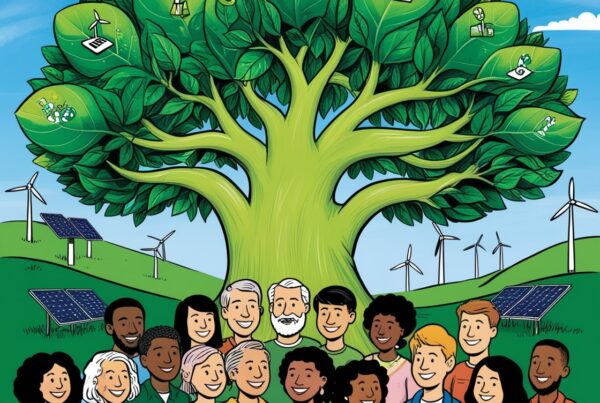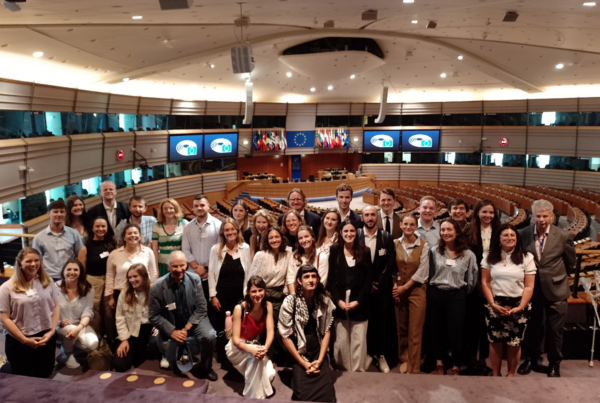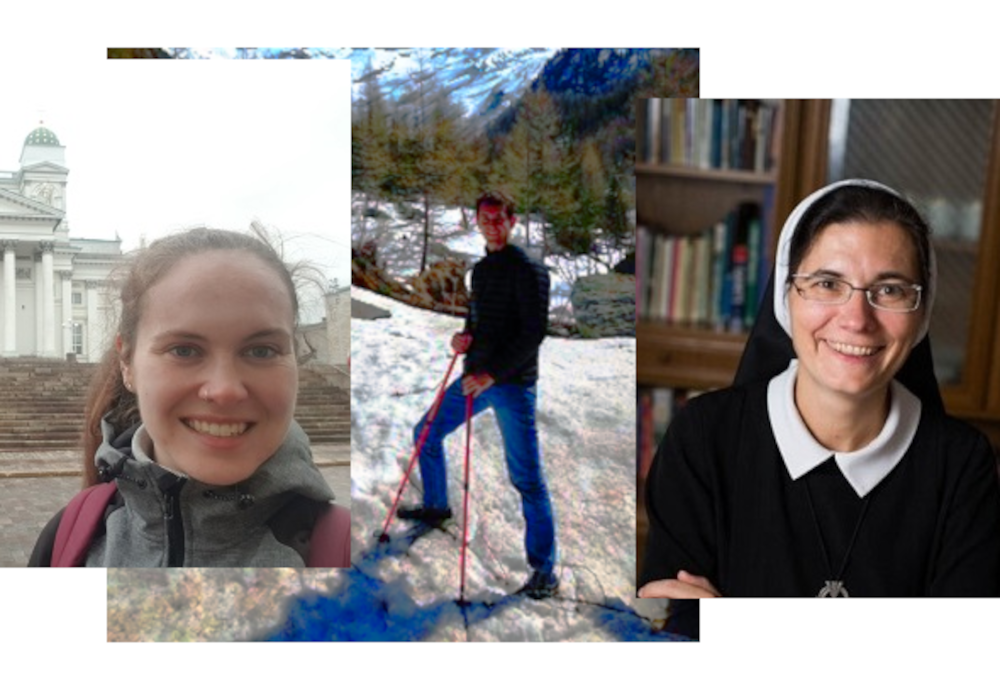
Mary O’Connor
Oxford to Helsinki bursary 2021 (originally planned in 2019/20)
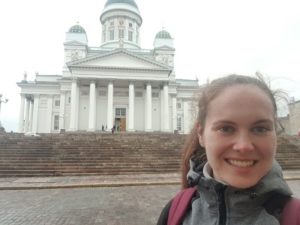
I am deeply grateful to the Europaeum for this wonderful opportunity to expand my research and to gain further insight and guidance into my postgraduate research. Initially, I had intended to travel to Helsinki in the summer of 2020, but this was cancelled due to the global Covid-19 pandemic. Thanks to the support of the Europaeum office and my supervisor at the University of Helsinki, Dr. Jaakko Tahkokallio, I was able to travel to Helsinki and research there for four weeks in September 2021. In my academic career I have had the opportunity to study in the US, the UK, and Ireland. Through these different countries and their educational institutions, I have come to greatly appreciate the invaluable experience of learning and studying in another culture and country, and the richness and challenges it gives to my own intellectual and interpersonal development. I wish to thank the Europaeum for my chance for collaboration and shared learning across Europe.
For my four weeks in Helsinki, I was supervised in weekly meetings by Dr Tahkokallio. I worked primarily from the National Library of Helsinki, a beautiful and historic building with excellent collections and easy access to resources. Dr Tahkokallio is an expert in twelfth-century Anglo-Norman manuscripts and is currently working on a project in medieval manuscript fragments. I am indebted to Dr Tahkokallio and can only thank him for his kindness, patience, and wonderful guidance over the course of my studies in Helsinki. I was made to feel welcome and integrated into academic life in Helsinki; Dr Tahkokallio arranged a desk and locker for me at the National Library, I was invited to lunches with fellow medieval academics, and I was given the opportunities to view medieval Finnish and Swedish manuscript fragments first-hand. Building on my earlier work in my masters, Dr Tahkokallio and I drew up a comprehensive four week plan for the work I intended to do in Helsinki. During this period I began to broadly research medieval codices and consider manuscript compilations constructions and the relationship between texts in compilations. It is my intention that this work, which was based on my dissertation work, will support and expand my research for my PhD project. My time in Helsinki was extremely productive as I began to think more deeply and more broadly about questions of historical context, literary traditions, and broader scholarly inquiries and how my own research related to them. Thanks to my time in Helsinki and to Dr Tahkokallio, I now feel significantly more prepared for my PhD work.
Oscar Hartman-Davies
Oxford to Helsinki bursary 2021/22
Thanks to the generous support of Europaeum’s Oxford-Helsinki bursary, I was able to spend the month of August 2021 in Helsinki benefiting from the kind and insightful guidance of Dr Enrico Di Minin and the Helsinki Lab of Interdisciplinary Conservation Science (HELICS). The primary focus of the month was to work on the second chapter of my thesis on the governance of seabird bycatch in the Southern Ocean, as well as to contribute to the ongoing work of the Digital Ecologies research group, and I was grateful to the amazing library and work spaces provided by both the University and the City for enabling this. My time concluded with a presentation to HELICS on the results of my month’s research and on my doctoral project more generally. It was fascinating, over the course of our discussion, to identify commonalities between our approaches to the use of digital technologies in conservation practice as well as to contribute some thoughts to the lab’s emerging concerns with the social and ethical implications of these technologies. Receiving feedback from a different disciplinary angle to the one I am accustomed to was valuable, and has helped to shape and situate my work. After my time with the lab, I felt I had established new and fruitful connections that I hope will last beyond my doctoral research. On another note, I was also fortunate enough to meet fellow bursary recipient Mary O’Connor during my time in Helsinki and it was wonderful to hear of the diversity of projects the Europaeum has enabled.
After a year of working from home in Oxford and dealing with several cancelled fieldwork plans, it was refreshing and energising to spend time away engaging with new academic networks and experiencing Helsinki. As a half-Finn, this was not my first time in the country or city, but it was the longest I’ve spent in Finland and my Finnish language skills, which have steadily declined since leaving home, benefitted hugely as a result. Having felt unsure about whether living in Helsinki would be for me, or even practical given my level of spoken Finnish, I came away from the trip feeling much more capable and positive about this prospect. This said, I suppose the real challenge will be to spend a winter there, as the light- and sun-drenched summer months may have given me a false impression! I see that past recipients have laid out some useful information and tips for future award recipients who will be new to the city, and so whilst I won’t repeat this here (but get a city bike pass, go to sompasauna, and get out to the islands!) I’m more than happy to answer questions and give my two cents on how to make the most of Helsinki and the beautiful surrounding environment.
Ana Luisa Bernardino
Geneva to Oxford bursary 2019/20 (postponed to January 2021)
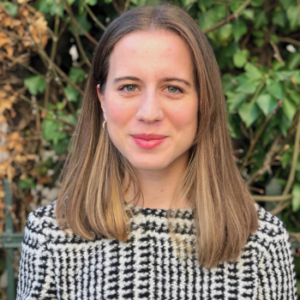
I am incredibly grateful to the Europaeum for its extremely generous support as I finalise my doctoral dissertation. Being the beneficiary of the Geneva-Oxford bursary was crucial in helping me progress with my research. Despite the constraints of the pandemic, I was able to take advantage of Oxford’s impressive collection of online and library resources, and to get in touch with fellow doctoral students, as well as Faculty.
Given the interdisciplinary nature of my research, being able to be in touch with professors from other fields and to attend their lectures was another particular highlight. Last but not least, I am also especially grateful to Dr Walecki and Ms Heinrich for their warm welcome and making my first days in Oxford feel like home.
Winnie Smith
Oxford to Helsinki bursary 2019
The Europaeum programme enabled me to spend three wonderful weeks in Helsinki between 27 May and 20 June 2019. In 2018, the classical languages department there started a five-year ERC-funded project building up a new digital grammar based on the language of primary documents written in Ancient Greek. These documents, found mainly in Egypt, date from between 300 BC and 800 AD. My PhD is on a related area (using corpus linguistics to study the spelling of these texts), and I’d often wished I could meet and learn from the specialists there.
While in the department, I was looked after by Dr Sonja Dahlgren and Prof Marja Vierros. Both Sonja and Marja went out of their way to welcome me. I was lent a bike, given space in a shared office, and invited to approach them with questions at any time. They also regularly made time to have lunch with me to talk informally. I was there to work on my own research rather than contribute to the project, and I sometimes wondered whether the work I was doing could repay their kindness. Three weeks is not a long time, and in retrospect I wish I had more measurable goals for what wanted to achieve during the visit (e.g. a finished piece of writing), not least so that I could show my hosts hard evidence of how helpful the stay had been to me.
Nevertheless, I found my visit very productive in terms of how I think about my work.Throughout the period covered by the project, Greek in Egypt was in contact with spoken and written Egyptian, with some interruptions to how and how much Egyptian was written. Sonja specialises in the linguistics of this contact. She gave me helpful pointers on parallels between spelling patterns in Greek and Coptic, the last, alphabetic stage of written Egyptian. Seeing the relevance of Coptic, which I do not know, made me realise I was in danger of falling into an at best Eurocentric trap I am aware of and keen to avoid: of thinking of Greek as a European language even though large amounts of primary material come from North Africa and Asia, where there was more or less visible contact with local languages. In plainer words, I was guilty of ignoring the context of my material because it is complicated and traditionally covered by other fields. I have resolved to spend time asking to discuss my work with Egyptologists, and not expecting an easy ride.
Sonja’s guidance was particularly interesting because her main thesis (that some spelling patterns in Egyptian Greek testify to phonological transfer from Egyptian) apparently contradicts mine (that the spelling of documents I look at suggest that writers’ Greek literacy was high even in documents where it has been traditionally considered poor). In fact I think these positions are much less in tension than they look; explaining that (to do with what norms applied to writing, and what the language of surviving writing is evidence of) has now got more prominence in my thesis plan. Marja had helpful comments on linking spelling habits to scribal hands (something I find difficult to get my head round, so always good to be reminded of) and showed me round the digital platform the project has developed for annotating papyri. She also helped me arrange a meeting with the developer, Erik. This was a big boost to my own workflow, and I have continued using the tools since.
The friendliness extended beyond the department. Another reason I had wanted to visit Helsinki is that the English department strong tradition of historical corpus linguistics research. I met Dr Samuli Kaislaniemi and had an interesting discussion about parallels in the difficulty of having a definition of “error” in papyri and deciding what a spelling mistake is in Early Modern English manuscripts, which editions more or less explicitly “correct”. I also met Juhana Aunesluoma of the Europaeum office in Helsinki. He mentioned that June is a good time to visit because scholars are still largely around, but teaching and exams are (largely) done.
I’d chosen June by chance, but I’d definitely agree it’s a good time to come. As well as host scholars having more time, the length of the days means you can pack a lot in. If you do come in June and aren’t used to it essentially not ever getting properly dark, be prepared to find it weird. It affects people differently: it didn’t affect my ability to sleep, but I did mean I often simply forgot to go to bed because the cue wasn’t there. I’d recommend setting a timer to remind yourself. Bring an eye mask if light disturbs your sleep.
As I understand the exchange to Helsinki is relatively new, I’ve put some practical info below. I’ll wrap up the report by saying how positive an experience the trip was. The exchange helped me think about my work in new ways, and find connections with scholars in other disciplines. I was able to spend time learning from specialists whose work was very relevant to me, and who I would otherwise never had had a realistic prospect of getting to know. I also got to see how a different academic system operates, and see a social model whose assumptions of the public good were very different from discourse in the UK. Seeing the country you live in from the outside is always a useful thing, and it did not come off better from the comparison. I had a productive and deeply enjoyable time, and I’d warmly recommend an Europaeum exchange with Helsinki to anyone.
I’d like to share some practical information. I stayed in university halls run by Unihome. The quality of the accommodation was excellent, far above anything I’ve ever seen offered to students in the UK, and better than a lot of non-student accommodation too. I’d say it’s a good option – it’s hard to find short-term accommodation elsewhere, and it was a good deal cheaper than say a room on AirBnB. YRent includes most things (including laundry and a sauna), but not, weirdly, linens. You will be able to rent these, but linens are often left behind by previous users and / or can be found in second-hand shops for less, so wait till you get there and see whether you need to before renting a pack. Unihome’s communication can be a bit haphazard. Essentially, when you arrive, you have to arrange to pick up your keys from the main office, Töölö Towers, wherever you’re staying. Other than that, keep your key on you at all times (self-closing doors, hefty lockout fee), take photos of any damage when you arrive, be prepared to do a thorough clean before you leave, and all will be fine.
Finland is not cheap, but as long as you don’t go near any alcohol (if you want some, buy it in Estonia) the bursary should cover a budgeted 3-week stay. A month might be a push. In the summer, Helsinki’s transport company, HSL, offers hire bikes (€30 for a season; free half-hour rides, modest charges past that). These are excellent value compared to bus / tram fares. Public transport was excellent. Fares are stacked against occasional users, so if you’re going to use the bus, get a pass; app is cheapest. If you can borrow a bike, there’s a bike repair point just by the Helsinki Central Library. Coach trips (e.g. OnniBus) and the ferry to Tallinn (advice on https://herfinland.com/helsinki-tallinn-ferry) are really affordable ways of sightseeing. As I learned, a day cruise to Tallinn leaves you with about 5 hours there: a bit too much time not to be bored in the old town (fascinating but absolutely tiny) and not quite enough to go and see a few things properly. I’d definitely recommend a hostel for the night to get more done.
I travelled overland from the UK. If you’re interested in doing the same, there’s a route through Sweden or up through Germany (https://www.seat61.com/Finland.htm). I took the Germany option (Finnlines ferry from Travemuende). Finnlines treat you well, but info can be lacking in advance: foot passengers clearly aren’t their core business.
Tips:
- The ferry terminal does not connect to Travemuende train station. You could walk, but it’d be on the verge on a port road with lots of goods traffic. You’re better off taking a bus from Luebeck train station, where you’d have to change anyway. Cash ticket from the driver.
- The terminal at Travemuende has plenty of space to sit downstairs. There’s a café (very meat-based, plate of good chips for a very reasonable price) and a wholesale alcohol shop. Check-in for foot-passengers won’t start until about 11pm, so if chips can fit into your evening it’s a good use of time.
- If you book a cabin, you book a *berth* in it rather than the whole thing. I think you can technically book a whole cabin, but that is… not a budget option. You don’t technically have to book a berth – there are recliner seats and lockers much cheaper if you don’t, and shared loos. The seats are comfortable. As it’s a 30-hour crossing, I’m not sure the saving is worth it, particularly as you’d have to bring your own sleeping bag. There’s a free sauna onboard. Deck space is limited.
- There’s catering available on board. A coffee’s not too expensive, but you’re much better off bringing your own food. There’s a bakery and small supermarket at Luebeck station. The info brochure says the tap water is drinkable, but most people I saw had brought their own too.
- If you can, download the HSL app and buy a ticket for your arrival in Helsinki before you set off from Travemuende. Disembarkation in Helsinki is relatively quick; if you set the ticket to start 15 minutes after scheduled arrival, you should have plenty of time left on the time slot to catch the bus. The ferry docks a bus-ride away from the first metro station. Internet at sea is available but truly extortionate. A paper single from the driver in Helsinki is possible, but again not much cheaper than a day ticket.
Martin Babicka
Oxford to Prague, 2019
I am researching ‘Cultural history of Czech economic transformation – Temporailty, Hierarchies, Consumerism’ for an MSt in History at Oxford. The bursary enabled me to spend over a month in Prague in spring 2019. I dedicated most of my time to doing primary research in three institutions – the Czech National Library, Czech National Museum Archives (in Terezín, outside of Prague) and the Czech Television Archives. It was the first time I had visited these two archives which was a crucial help not only for writing my master’s thesis but, as it turned out, also in refining the doctoral project that I’m now starting. Thanks to the invitation of a lecturer from Charles University, who was my consultant during the research stay there, I had the chance to present my master’s thesis at a graduate seminar of the Institute of Czech History and get feedback from local professors and students, one of whom works on a similar topic. After the end of the research stay, I also presented the outcomes of my Prague research at a graduate conference at Central European University, Budapest.
Miles Harrison
Oxford to Geneva, 17 March – 17 April 2019
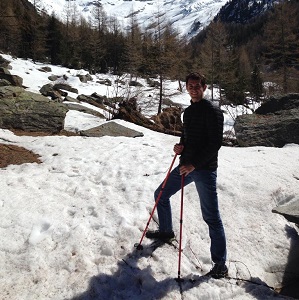
Having grown up in the US, studied during my undergraduate years in Scotland (St Andrews, ‘17) and Russia (St Petersburg State University, ‘15), and now as a Master’s student in Global Governance and Diplomacy at the University of Oxford, I’ve learned that few environments can be as enriching and stimulating as an exchange across cultures and institutions. Through the generous support of Europaeum, I was very fortunate to be able to include the Graduate Institute in Geneva to this roster of academic organizations and experiences. During my four-week stay in one of the world’s great capitals of diplomacy and multilateralism, I was not only able to progress my thinking for my dissertation on economic sanctions through access to the Institute’s world-renowned resources and expertise on the topic, I was also able to get a taste for life in Switzerland—a unique opportunity for which I am profoundly grateful.
After returning to further studies in October 2018 following a brief year of work experience— and subsequently realizing that the one-year MSc program at Oxford would go by much faster than I had anticipated—I came across the bursary while looking for opportunities to make the most of the networks between institutions provided by being a student again. Picking up on my interest in the use and governance of coercive policy tools in diplomacy, I had already decided that I wanted to write my dissertation broadly on economic sanctions, a well-trodden area in international affairs that would challenge my ability to make a distinct academic contribution. However, while I was determined to undertake some form of travel for my project through Oxford’s many exchange partnerships, I had not expected to find a program so ideally suited to my interests at the perfect institution for conducting research on sanctions: the Graduate Institute in Geneva. Before arriving, I had encountered journal articles and books on sanctions authored by Graduate Institute faculty, and looked forward to immersing myself in the institution’s knowledge. The first few days into my stay, it became clear that the four weeks would be even greater than a fruitful exchange of ideas and perspectives on sanctions. Members across the Institute —from fellow Masters’ students, to PhDs, post-docs, Researchers, and Professors—were remarkably open to meeting and went out of their way to include me in the academic community. Particularly in light of my short stay, it was invaluable get to know fellow deskmates on the 7th Floor of Petal 2 as well as to present my ongoing research and receive feedback from faculty in the Global Governance Centre. In particular, I benefitted from the
valuable advice of Professor Thomas Biersteker, one of distinguished voices in the field of international relations and sanctions, as well as the interdisciplinary perspectives of Professor Gregoire Mallard, Dr. Erica Moret, and Farzan Sabet. I thank them for sharing their time, ideas, and resources over coffee, in the proverbial classroom, and outside of it (see the enclosed photo of a “sanctions hike” in the Valais Alps).
Although the focus of my research moved towards investigating the role of the US as a global sanctions enforcer, rather than universal sanctions regimes imposed by the United Nations, the links between the Graduate Institute, the UN, and the world of sanctions practitioners through the Geneva International Sanctions Network (GSIN) was also a major advantage for interviewing and knowledge-building on how sanctions operate from the perspectives of government and the private sector. I also found that the palpable connections between the Institute and Geneva’s many multilateral agencies give the institution a special character of academic rigour combined with practical policy expertise. Overall, the Oxford-Geneva bursary gave me the opportunity to immerse myself in an environment conducive to building momentum on my dissertation research and getting to know a host of kind and open people working on a range of interesting projects in a city at the heart of global multilateralism — I recommend it to anyone interested in doing the same, and hope to return to Geneva in the future!
Leena Enbom
Helsinki to Oxford, 2019
As a PhD Candidate in Economic and Social History at the University of Helsinki, I spent one month in the University of Oxford in April-May 2019. I had planned my stay beforehand by being in contact with a couple of scholars within the discipline of Economic and Social History in Oxford. Professor Deborah Oxley became my contact person and she was a wonderful academic support and mentor during my stay in Oxford. I got a chance to give a paper in the Economic and Social History Annual Graduate Workshop which was a great start for my stay. I got very useful feedback regarding my own PhD work and learnt a lot from other people’s projects. In addition to that, I got to know nearly all the Economic and Social History graduate students through their works at once.
The following weeks of my stay were full of interesting seminars, meetings and individual working in the Bodleian Libraries. I participated regularly in Economic and Social history weekly seminars which included in-depth discussions on the applied methods and research strategies as well as reflections on broader academic and societal contributions. I got a chance to be a visitor in Nuffield, All Souls and St. Hilda’s Colleges through various events. After and between the official meetings, discussions often continued in less formal and spontaneous graduate student gatherings. That was also very inspiring!
Overall, the study period in Oxford was a fruitful experience which brought me new contacts and scholarly networks and broadened my view on various ways to conduct academic historical research. More concretely, seminar meetings and one-to-one feedback sessions spawned me new research literature and a more focused methodological approach in my own PhD study. I wish I had a chance to come back to Oxford someday during my future projects.
Ellen Holtmaat
Geneva to Oxford, 2019
I received the Europaeum grant and spent almost a month in Oxford. This was an amazing time in multiple respects.
Receiving the grant put me in a position to reach out to one of the most well-known professors in my field, Duncan Snidal, to host me. I have met him three times during my stay in Oxford. He has been very welcoming, has put me in touch with several people and he has read two of my papers and has given extensive feedback both in writing and in person. It has been a pleasure to meet such a kind person, to get this useful feedback and spending time in Oxford and being hosted by such an accomplished professor, is an asset for my CV and my academic network.
Next to meeting Duncan Snidal, I met several other professors in my field, who took out time to meet me and exchange ideas on my research project. I also spontaneously made some useful connections when I attended dinners or several talks that were of interest to me. Currently, I have finished a scholarship application for a post doc with one of the professors I met during my stay.
Besides these great benefits content wise for my project and for my network, it was a pleasure to spend time and feel like an ‘insider’ at such an illustrious university. Studying in Harry Potter like libraries, having afternoon tea at the colleges, attending interesting talks and casually meeting some of the most famous professors in International Relations like Prof. Mearsheimer. The whole atmosphere was just so unique! I had a wonderful experience when being invited to a formal dinner. I had underestimated how ‘formal’ such a formal dinner is. With everybody dressed up, like for a gala, prayers in Latin and specific etiquettes. It was, as if I went back 100 years in time. A truly unique experience.
Meeting professors and students in Oxford also gave me a sense of the network that I am part of as an aspiring academic. Professors in Oxford appeared to know most of the professors at the Graduate Institute and even I had acquaintances from the Graduate Institute who were now studying in Oxford. It was a definite pleasure to meet them there, to be invited by them to these ‘surreal’ formal dinners and for them to help me find my way around in Oxford.
I was also invited, very British by the Europaeum office, for tea and biscuits, and had the chance to spend a wonderful morning with the administrator and director of the Europaeum office.
Oxford is like a small village surrounded by lovely parks and fields. It was wonderful cycling from my Airbnb through the university parks to the library, or going for a jog in the morning along the Thames, where the university’s rowers were doing their training. Meeting for drinks in 13th century pubs or having afternoon tea with a scone or cake, I thoroughly enjoyed this stay in nearly all of its facets 🙂
As suits such a historical place, the only downside was that the library provided an ink station for a pen, but not a 100% reliable wifi-connection.
Amal Shahid
Geneva to Oxford, 2019
I am a third year PhD candidate in the Department of International History at the Graduate Institute of International and Development Studies-Geneva, working under the supervision of Professor Balachandran. I received the support of the Europaeum Oxford-Geneva Study Bursary to conduct research on my thesis titled: The Political Economy of Casual Labour: Work, Famine and Public Works in the North-Western Provinces of Colonial India, c.1840-1914.
The Europaeum Research Bursary allowed me to stay in Oxford for three weeks and conduct research in the libraries of University of Oxford. During this time, I was able to look at some private papers of famine administrators, some rare books, as well as make use of the abundance of published material. Certain documents are required to register for the Bodleian card, for which one also has to pay 20 pounds. This card allows access to only Group A libraries, that is, not all college libraries are open for users and would require permission or additional application.
I spent most of my time at the Weston Library, where I could order all offsite material in their reading rooms. There is no limit to how many documents one can order in a day, but a limit on how many they can store for you at a time. It is advisable to contact any library in advance if one wishes to look at special material. I also visited the Angus library of Regent’s Park College for a historical pamphlet. All these libraries allowed me to pre-order material and the staff was very helpful. Bodleian libraries hold a vast repository of books. Oxford, Cambridge and British Library are among the four libraries that receive each book published in UK. I was able to read substantial secondary literature which otherwise is not readily available in Geneva.
In addition to personal research, I was also able to meet renowned professors in my field and discuss my work with them. This was also true for students, many of whom attend relevant seminars. Oxford has a vibrant seminar culture and many ongoing events, so for someone who is looking to gain knowledge outside the library, the University is the hub of all such dynamic activities. Of interest to me were the Economic and Social History Seminar and the Global History Seminars. The ideal time to visit Oxford would be during term time for the following reasons: to ensure that all professors are available; to be a part of ongoing seminars; and finally, to avoid peak tourist season when the city and the colleges can get very crowded.
Oxford is a beautiful place with many parks and museums. Due to lack of time, I did not have the time to explore the city in its entirety. However, I was able to visit the Pitt Rivers Museum, the Natural History Museum and the Ashmolean, besides touring some of the colleges and parks around the centre of the city. The libraries have fascinating areas which one must visit; such as the Duke Humphrey’s Library which is surrounded by rare books; or the Headley tea room for a quick and affordable coffee. The Weston library occasionally opens its terrace which has a beautiful view of Oxford on Fridays during Visiting Scholars’ meeting times (also a good opportunity to meet other researchers over coffee).
The Europaeum office was extremely helpful in directing us to interesting places, advising us on travel and accommodation in Oxford, as well as forwarding us relevant information on seminars and events. Prospective candidates should note that the accommodation costs in Oxford can be quite high, so best to book in advance as University housing can be unreliable with its availability. All in all, I had a good experience during my stay, made convenient thanks to the guidance from Susanne and Tracey. I was able to complete part of my final archival research and write a paper for a conference presentation, in addition to notes relevant for my thesis chapters. I would like to thank the Europaeum office for making this trip possible.
Hana Benesová
Prague to Oxford, 2018
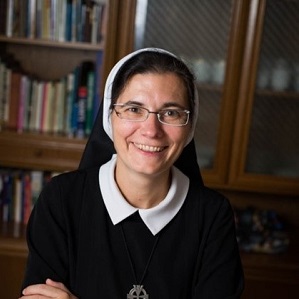
This year, I applied for a short-term research stay in Oxford. This position was listed by the Centre for the Study of Political Philosophy, Ethics and Religion. To my great happiness, my project was selected, and I received a month’s scholarship there. The project is a part of my dissertation, ‘The Relation between Desire and the Sacraments of the Church’. Due to the time limit, I narrowed the subject to the chapter, ‘Desire in the Sacraments of the Church in the Sermons of St Augustine’.
An important prerequisite for obtaining a scholarship was a pre-arranged collaboration with an Oxford professor. I addressed myself to Professor Carol Harrison, a prominent St Augustine specialist at Christ Church who generously offered me both her help and her time. I arranged accommodation at a convent of religious sisters, an Anglican community, living a contemplative and monastic life. Such a peaceful place was a wonderful environment for reflecting and studying.
The first day in Oxford, I met Mrs Susanne Heinrich at the Weston Library café. She is the administrator of the Europaeum. Mrs Heinrich provided me with important information and gave me written recommendation for obtaining a library card. One of the requirements for obtaining a reader’s card was to read the ancient Rules of Conduct for a university reader. To my great surprise, one of the librarians had a Czech version as well.
When I first sat down to study at the Bodleian Library, surrounded by silence and academics totally focused on the subject of study, I was completely captivated by this inspiring and creative environment. Professor Viviano once wrote to me: “The Bodleian is my idea of heaven, the great Bodleian in the sky.” And indeed, every day, when I entered the main entrance of one of Europe’s oldest libraries, I was flooded with feelings that were both joyous and paralysing. The possibilities offered by the library are endless.
Most of my days began at six o’clock with morning prayer in the chapel, followed by breakfast, a holy mass in the church of St Edmund and St Frideswill, adoration, and at nine o’clock I entered the library where I studied all morning. After my lunch break, I continued to study either in the Bodleian Library or in the library of the convent. The day ended at eight o’clock with night prayers.
The consultations with Professor Carol Harrison were very friendly and her kind approach helped me to shed my tensions and worries. Our first meeting took place during a working lunch with other academics from Christ Church. During lunch, Professor Harrison suggested that I should prepare questions about my research for the next meeting. Articulating good and logical questions is a key concept. A teacher can help a learner with both his/her knowledge and experience through well-formulated questions. At our next consultation, we discussed the text I had written, and Professor Harrison gave me very valuable advice on how to continue: what literature to use and in which sources to search for key ideas. Without her guidance I could easily lose myself in the amount of available material.
It was an extraordinary experience – to have time simply for studying or for pondering more deeply over new concepts. After this experience, the Bodleian is also my idea of heaven.

